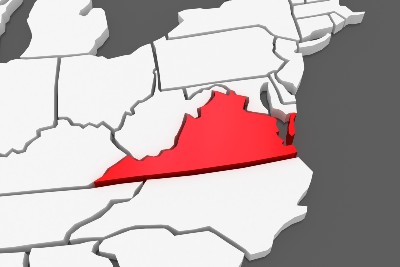
Virginia schools are struggling, according to a new report presented to Gov. Glenn Youngkin, whose administration is prioritizing taking money from the state budget to go to privately-run charter schools, as if that will help.
The report, “Our Commitment to Virginians: High Expectations and Excellence for All Students,” released on Thursday, puts the blame on Youngkin’s predecessors in office – Republican Bob McDonnell and Democrats Terry McAuliffe and Ralph Northam – saying state policy choices and priorities over the last decade have resulted in lower student achievement in reading and mathematics, wider achievement gaps, reduced transparency, and eroding parent confidence in the Commonwealth’s public schools.
The complete “Our Commitment to Virginians: High Expectations and Excellence for All Students” report is available here.
“Virginia’s public schools have long enjoyed a reputation for academic excellence,” Youngkin said. “But the data in this report demonstrates that Virginia’s student achievement gaps are disturbing and cannot be ignored. This report documents a clear and sobering lesson on the consequences for students when state leaders lower academic standards and dismantle accountability.”
Findings in the report include the following:
- Virginia now has the lowest proficiency standards in reading and mathematics in the nation, resulting in the wide “honesty gaps” between the performance of students on state Standards of Learning tests and performance on the National Assessment of Educational Progress.
- Despite statistically significant declines in the reading performance of Virginia students on the 2019 NAEP and on state assessments, the Board of Education voted in 2020 to lower the proficiency standard on all elementary, middle school, and high school SOL reading tests.
- The Board of Education’s Standards of Accreditation — once an accountability model for other states — now de-emphasize grade-level proficiency in reading and mathematics and mask wide achievement gaps.
- Pre-pandemic results from college entrance examinations taken by 2019 Virginia high graduates show wide disparities in college readiness, especially in mathematics.
- Last fall, 42 percent of Virginia second-graders scored below the benchmark on the Commonwealth’s early literacy screening assessment.
- Homeschooling increased by 56 percent in 2020-2021 as the parents of 59,638 school-age children chose not to send their children to public schools. Despite the return to in-person instruction this year, the parents of 55,769 students chose homeschooling over enrolling their children in a public school. In addition, 5,828 students have transferred from Virginia public schools to in-state private schools since the beginning of the 2020-2021 school year.
“Virginians deserve to know the truth about how our children are doing,” said Secretary of Education Aimee Guidera. “Under Gov. Youngkin’s leadership, we aim to be the most transparent and accountable state in the nation, while empowering parents and teachers with the knowledge and choices to do what’s best for each learner.”
“I want to stress that this report is not an indictment of our teachers, principals, and other school leaders. They have worked tirelessly over the last few years under extraordinary conditions and circumstances,” said State Superintendent Jillian Balow. “But local decision-making inevitably reflects priorities and policy choices determined at the state level. I am committed to working with Governor Youngkin, the state Board of Education, and the General Assembly to reorder Virginia’s K-12 priorities, raise expectations for all of our students, and create an accreditation system that is transparent, honest, and that prioritizes grade-level proficiency.”
The report identifies Youngkin’s guiding principles in education that will guide the work of his Administration in restoring excellence in education:
- Establish and maintain high expectations for students, schools, and ourselves.
- Advance parent and teacher empowerment to best serve students in partnership.
- Demand zero-tolerance for discrimination in education and beyond.
- Foster innovation in all education environments.
- Provide transparency and accountability so that each child is seen and receives what they need to succeed.
- Ensure post-secondary readiness so that all learners can succeed in life.
- Protect and nurture freedom of speech and inquiry to ensure every student is taught how to think, not what to think.
Notice how there’s nothing in there about how it all gets paid for. Youngkin’s priority in Year 1 is on tax cuts that, coupled with his push for charter schools, will further strain local school budgets.
“The future prosperity of our Commonwealth depends on how well we prepare our students,” Youngkin said. “Working alongside parents, teachers, and policymakers, we will restore excellence in education and ensure that all students have access to quality education opportunities that prepare them for success in our workplaces, our communities, and our democracy.”
Story by Chris Graham










